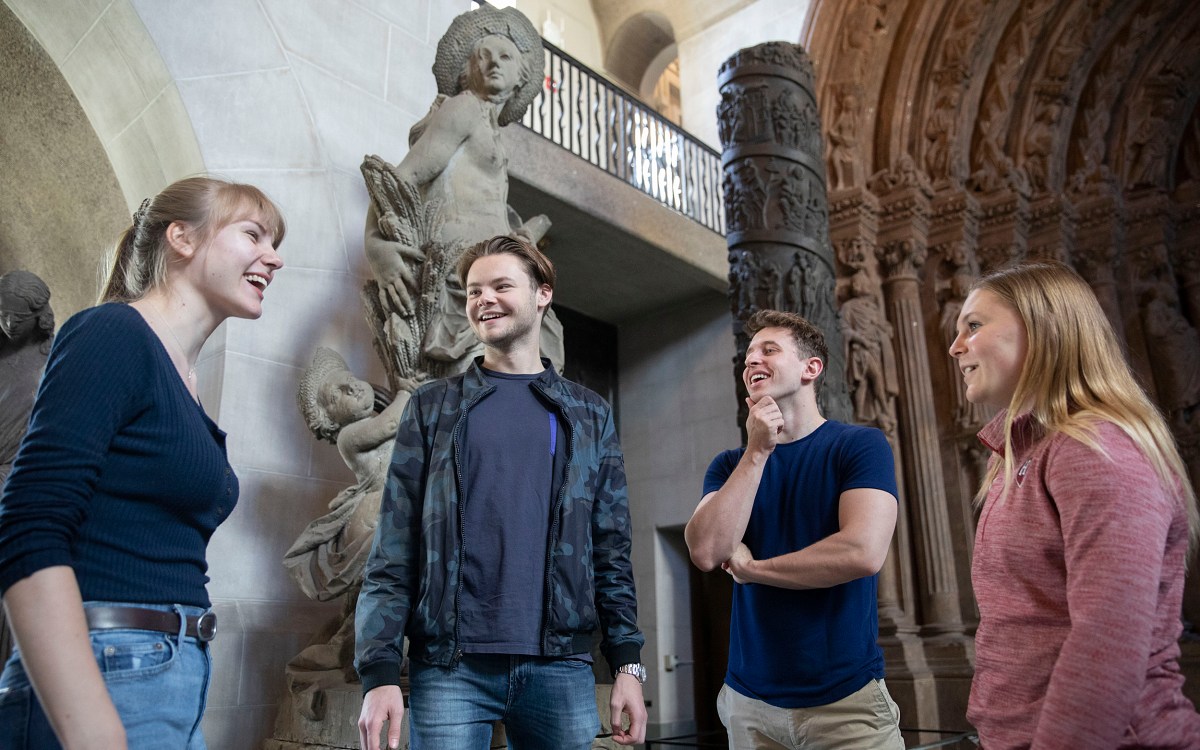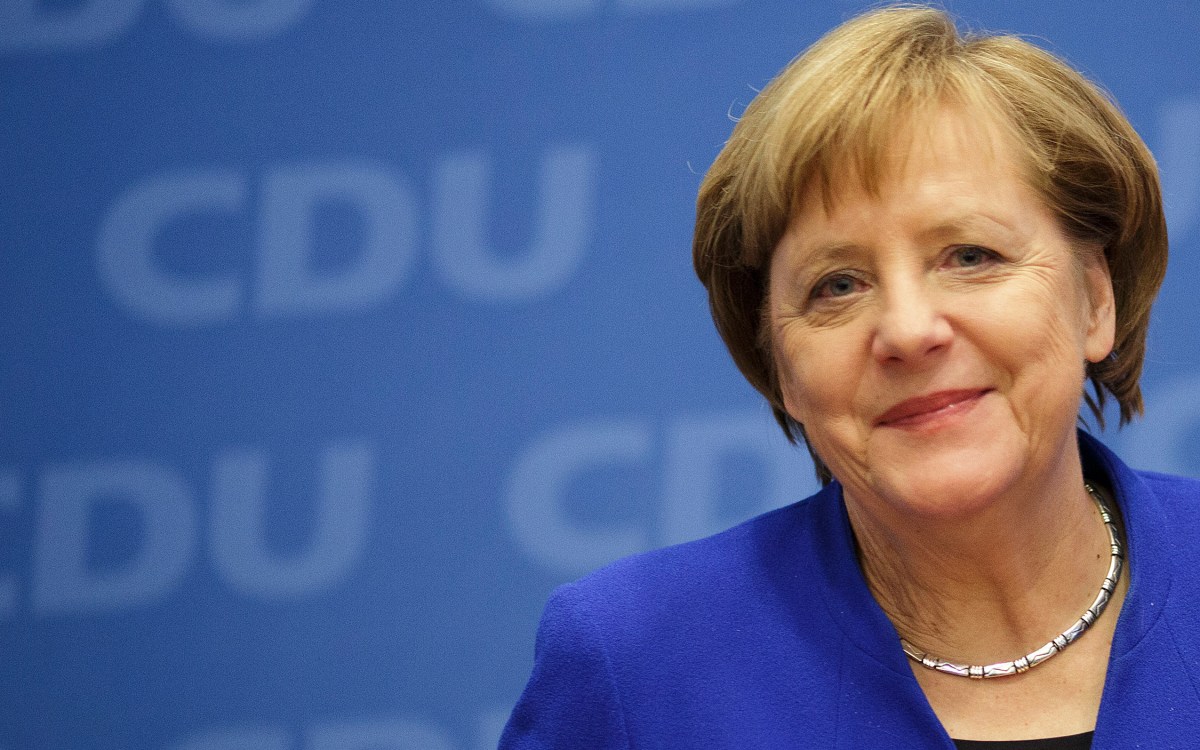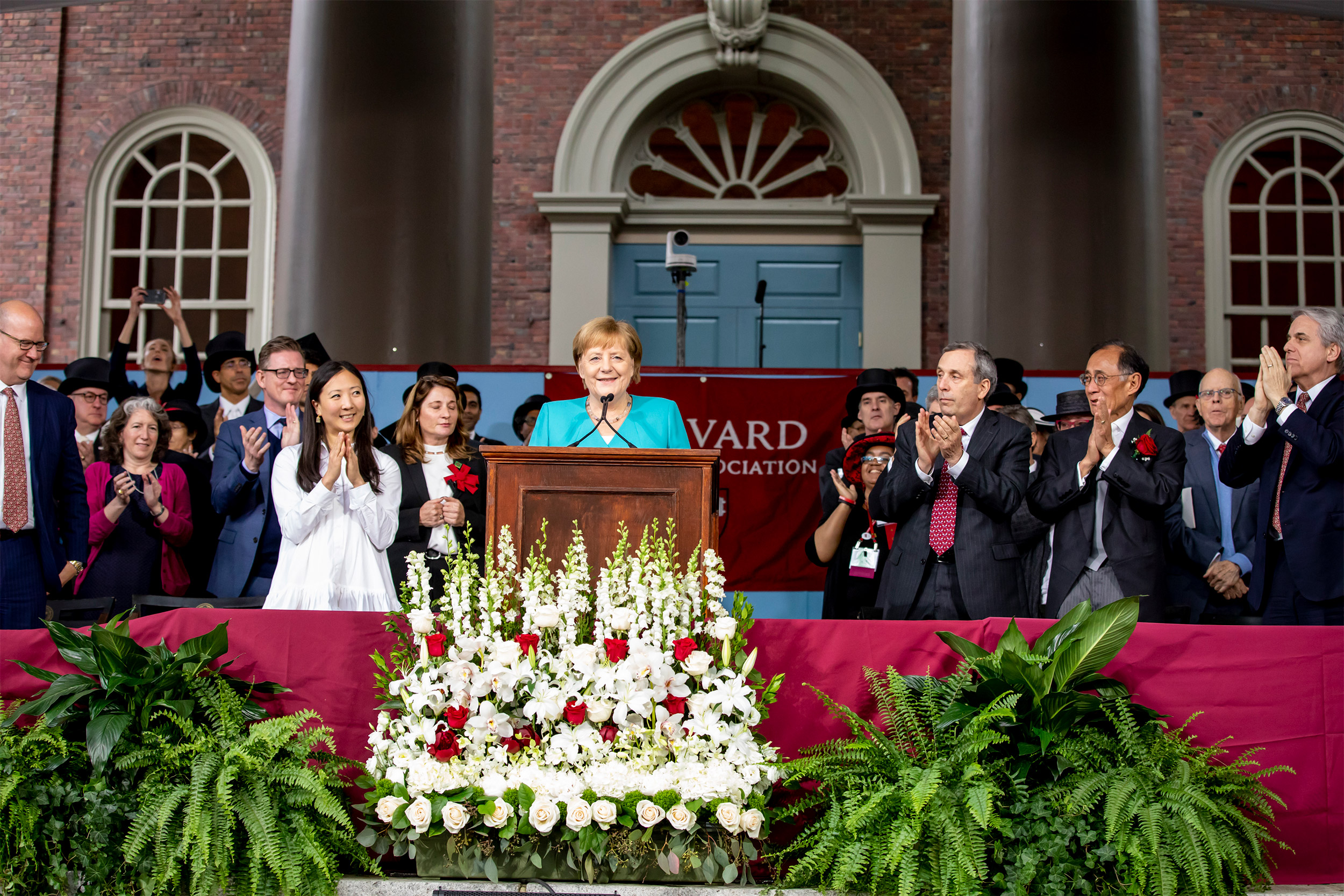
In a speech that earned several standing ovations, German Chancellor Angela Merkel encourages Harvard graduates to go out into the world and “tear down walls of ignorance and narrow-mindedness, for nothing has to stay as it is.”
Rose Lincoln/Harvard Staff Photographer
Merkel advises graduates: Break the walls that hem you in
At Commencement, German chancellor urges them ‘to embrace new beginnings’
As Harvard’s Class of 2019 gathered for the last time at Commencement Thursday afternoon, German Chancellor Angela Merkel cautioned the new graduates to take nothing for granted.
“Our individual liberties are not givens. Democracy is not something we can take for granted. Neither is peace, and neither is prosperity,” said Merkel, the main speaker. “But if we break down the walls that hem us in, if we step out into the open and have the courage to embrace new beginnings, everything is possible.”
Speaking primarily in German, with her remarks periodically translated into English, Merkel drew from her own remarkable life story as a 35-year-old scientist in communist East Germany who rose through the ranks of the newly unified state’s political system to become Germany’s first woman chancellor and, many analysts would argue, leader of the free world. She urged the new graduates to take risks, make thoughtful decisions, and hold onto core values.
She recalled her frustration at walking past the Berlin Wall every day on her way home from work. It was a barrier of steel and concrete that divided the city, its people, and its families, including her own.
“Every day, I had to turn away from freedom at the last minute,” she said of her early years, during a 35-minute speech to the graduates and alumni during the annual meeting of the Harvard Alumni Association (HAA) before an overflow crowd at Tercentenary Theatre.
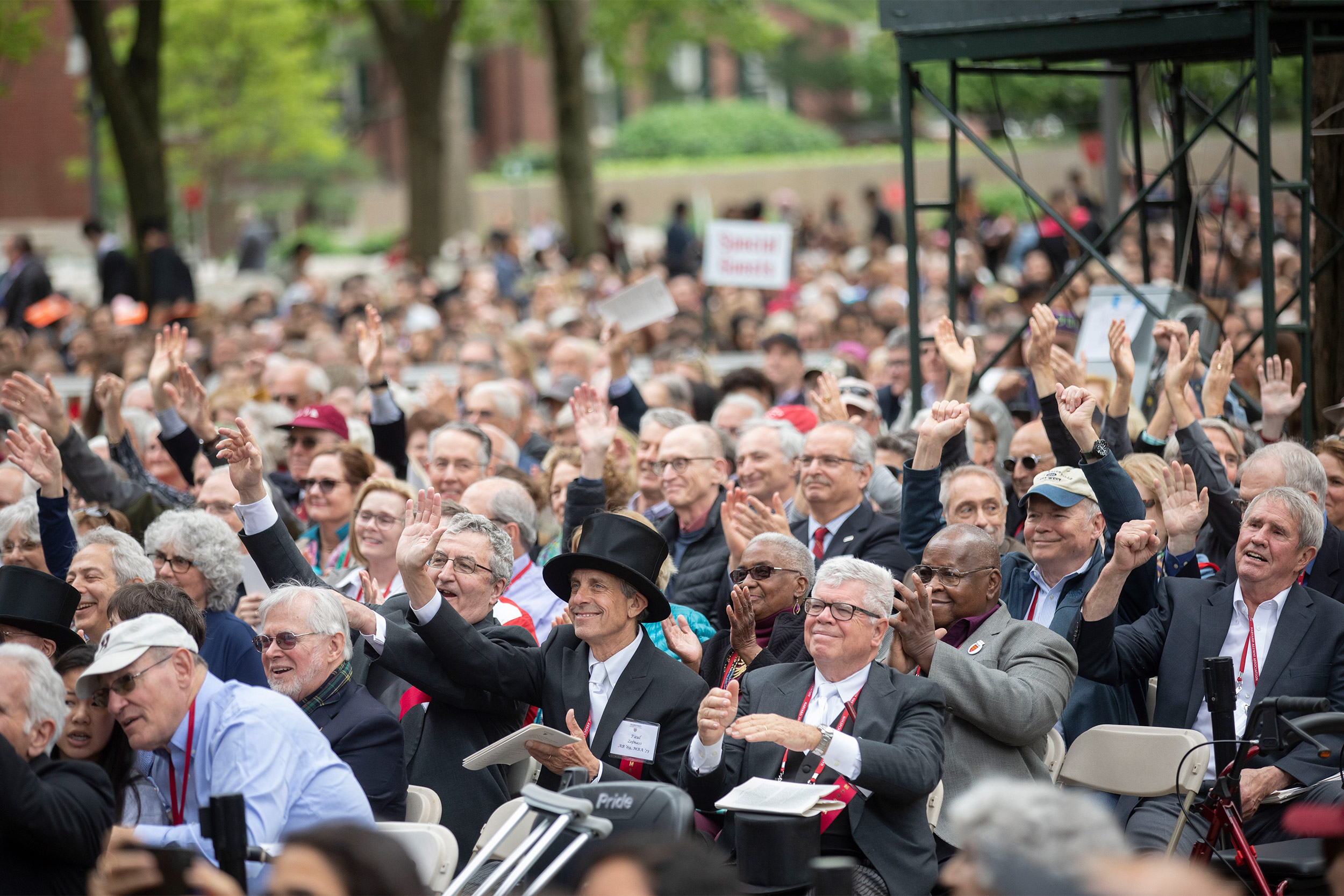
An overflow crowd at Tercentenary Theatre greets German Chancellor Angela Merkel.
Kris Snibbe/Harvard Staff Photographer
“The Berlin Wall limited my opportunities. It quite literally stood in my way. However, there was one thing which this wall couldn’t do through all those years: It couldn’t impose limits on my inner thoughts, my personality, my imagination, my dreams and desires.”
Indeed, the wall’s unexpected fall in 1989 with the collapse of communism not only ended a divided Germany, it presented Merkel with new possibilities, including a chance to become someone she never imagined she could be. “A door suddenly opened” and “I was able to cross this border and venture out in to the great wide open,” she recalled.
What she learned from that transformative experience, she told the audience, was that “anything that seems set in stone or inalterable can indeed change,” and that they ought to approach the walls they’ll inevitably encounter in their lives, whether physical, social, intellectual, or cultural, in similar fashion.
During Morning Exercises, the German chancellor was awarded an honorary doctor of laws degree for her resolute leadership on the world stage and her unwavering defense of democratic ideals and international cooperation.
More a traditional commencement speech than a political address, Merkel’s remarks did touch on several topical foreign-policy issues. She touted the benefits of the European Union and multilateralism, the importance of a transatlantic relationship with the U.S. that is “based on democratic values and human rights,” and — as Europe braces for a possible trade clash with the U.S. — mutual prosperity as a result of international free trade.
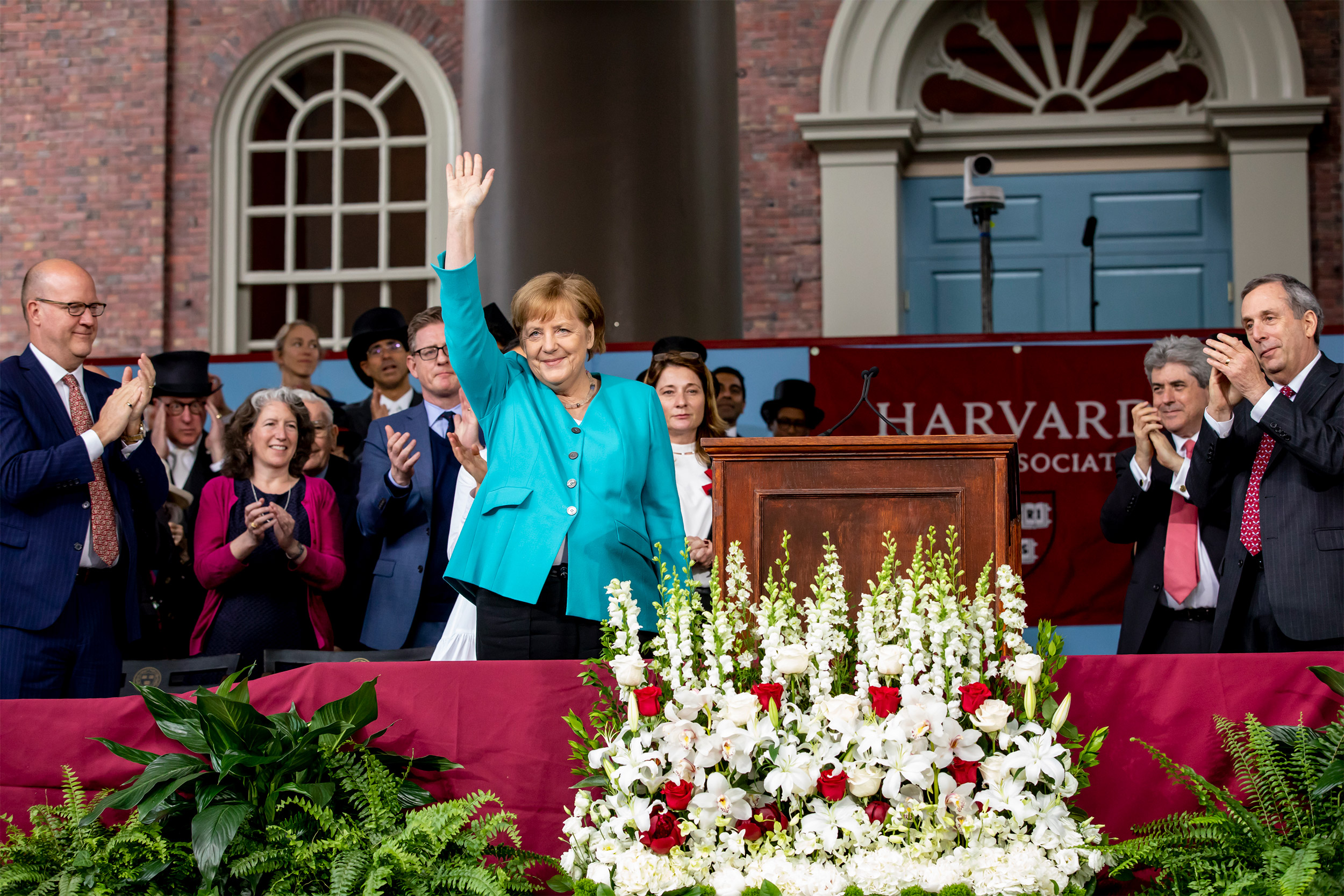
Angela Merkel’s 35-minute speech ends on a wave of applause.
Rose Lincoln/Harvard Staff Photographer
Despite her longstanding popularity as chancellor for 14 years, Merkel’s own center-right party, the Christian Democratic Union, saw an erosion of voter support (to parties on both the far right and far left) in last week’s elections to the European Parliament. In a television interview, Merkel said showing democracy in action was the best way to confront the dangers posed by Europe’s rising populist, anti-democratic movements, while conceding that climate change is now a decisive political issue, particularly for young Germans.
Perhaps in a nod to that reality, Merkel, who will leave office in 2021, pledged that she would “do everything in my power” to ensure that Germany achieves climate neutrality by 2050.
In this era of impatience and instant gratification, Merkel urged the graduates and alumni to consider why they’re making decisions, particularly around technology. As chancellor, she said, she often asks herself whether she’s doing something because it is right or because it is possible.
“That is something you, too, need to keep asking yourselves,” she said. “Are we laying down the rules for technology, or is technology dictating how we act?”
A deliberative leader, Merkel suggested graduates take more time when thinking through decisions, a process that will require “courage and truthfulness” in how they deal with others.
“And perhaps most importantly, it calls for us to be honest with ourselves. What better place to begin to do so than here, in this place where so many young people from all over the world come to learn, research, and discuss the issues of our time under the maxim of truth? That requires us not to describe lies as truth and truth as lies,” she said, to a standing ovation.
In parting, Merkel advised graduates to go out into the world and “tear down walls of ignorance and narrow-mindedness, for nothing has to stay as it is.”
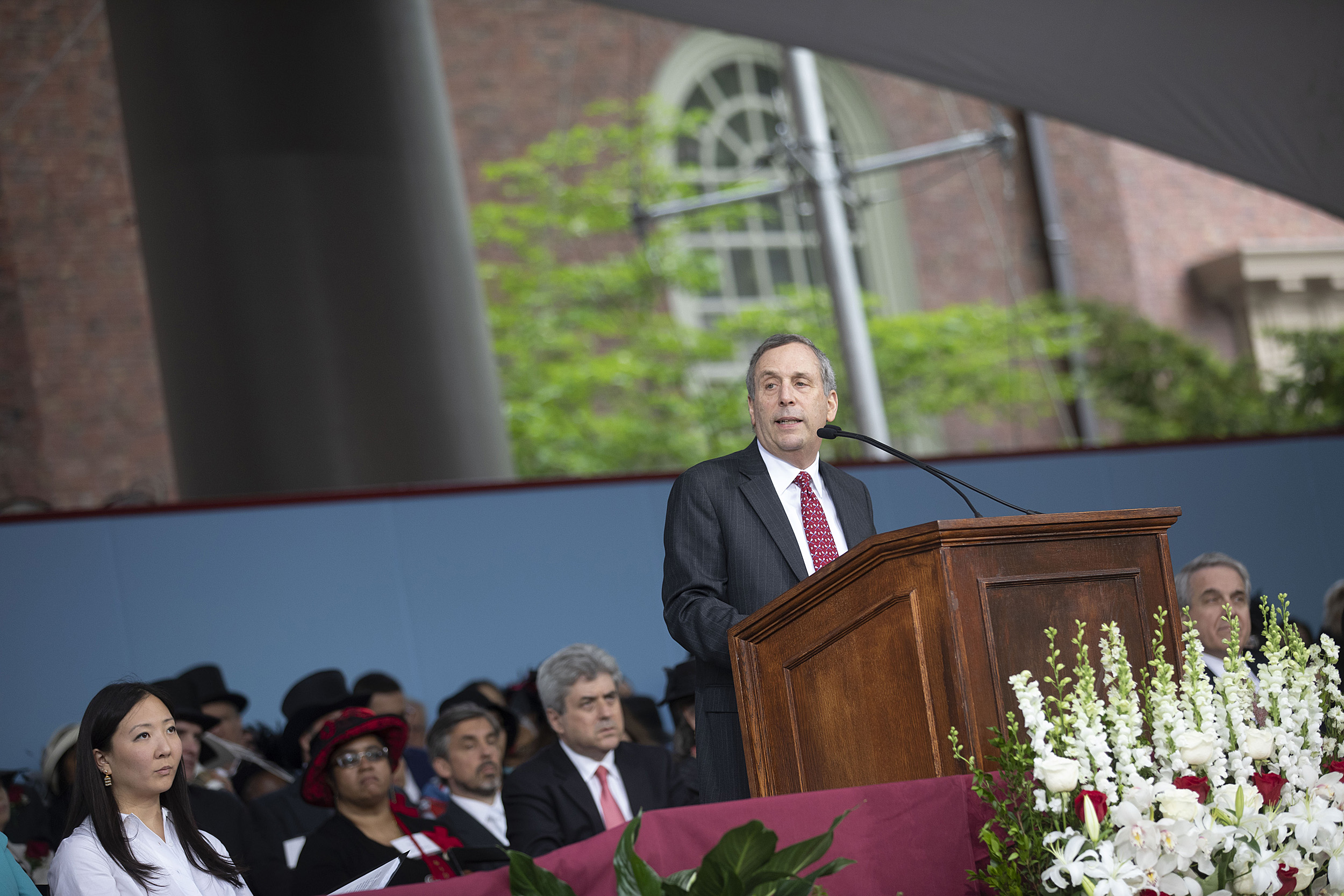
In his report to alumni, Harvard President Larry Bacow, J.D. ’76, M.P.P. ’76, Ph.D. ’78, recalled some highlights of his first year leading the University, traveling to cities across the U.S. and Asia and learning from alumni and community leaders committed to public service. He talked about getting to know students, including graduating seniors, as well as faculty and staff on Harvard’s Cambridge and Boston campuses who work in many different ways to change the world and serve the public good.
Bacow also noted the “volatility” of our times, which have been marred by episodes of deadly violence, especially against Jewish, Muslim, and Christian worshippers; the persistence of sexual assault and harassment; and the existential threat posed by climate change and extreme weather.
“To be sure, there is much in the world that rightly troubles us. But there is even more that gives us cause for hope,” said Bacow. “And that spirit of hope — the willingness both to see the world as it is and to consider how we can help make it better — is in many ways the spirit that defines this University and, I believe, joins us all together.”
Bacow said he has been inspired by what he has witnessed thus far.
“That is the power of this institution — not its brand, not our buildings, not our pomp and circumstance,” he said. “This University is its people — their aspirations, their achievements, their diversity of background and experience and thought, their desire to see beyond themselves and their devotion to serving others.
“So yes, I am an optimist. I am an optimist because I live and work among all of you, because I see what you do and because I know the boundless potential of what you can do.”
HAA President Margaret M. Wang ’09 welcomed the new graduates into the alumni fold, greeted the milestone reunion classes in attendance, and announced the results of the Board of Overseers and HAA Board of Directors elections.
Also, Bacow presented Harvard Medals to alumni Teresita Alvarez-Bjelland ’76, M.B.A. ’79, Dan H. Fenn Jr. ’44, A.M. ’72, and Tamara Elliott Rogers ’74 for their outstanding contributions and service to the University over many years.


